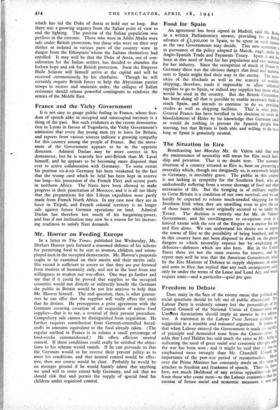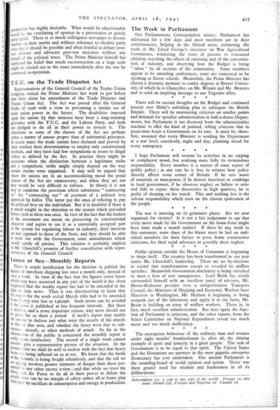Freedom to Debate
Does unity in the face of the enemy mean that political and social questions should be left out of public 'discussion? The Labour Party is evidently uneasy lest the proceedings of the Central Council of the National Union of Conservative and Unielhist Associations should imply an answer in the affinat tive. A statement in the Labour Press Service contests the suggestion in a sensible and reasoned argument. It points out that when Labour entered the Government it made no sactifi°1,_ of principle and demanded none from the Conser „rives. ti adds that Lord 'Halifax has said much the same as Mr Attlee la indicating the need of great social and economic changes who the war has been won ; and it might be said that II) one has emphasised more strongly than Mr. Churchill himself Etc importance of the post-war period of reconstruction. Morn over the Prime Minister has constantly dwelt on the value be attaches to freedom and frankness of speech. There. is, there:, fore, not much likelihood of any serious opposition--at 1'7 from those who count most—to the Labour contention that af cussion of future social and economic measures is not e°9 permissible but highly desirable. What would be objectionable would be the ventilating of opinion in a provocative or purely party spirit. There is so much willingness nowadays to discuss matters on their merits and without reference to obsolete party cries that it should be possible and often fruitful to debate post- war reforms and advocate post-war measures without any breach of the political truce. The Prime Minister himself has expressed his belief that much reconstruction on a large scale might be carried out in the years immediately after the war by continued co-operation.



























 Previous page
Previous page